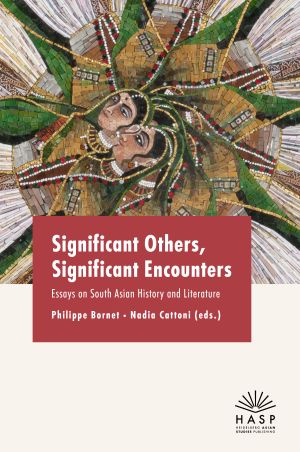Zitationsvorschlag
Lizenz (Kapitel)

Dieses Werk steht unter der Lizenz Creative Commons Namensnennung - Weitergabe unter gleichen Bedingungen 4.0 International.
Identifier (Buch)
Veröffentlicht
Unlikely Encounters
Ideas about India in Two Nineteenth-Century European Nationalist Narratives (Joseph Méry and Georgi Sava Rakovski)
For many centuries up to the present day, Europe’s fascination for India has inspired a plethora of writings, which, while talking about India, creatively mirrors the assumptions of their authors about their own societies and zeitgeist. Since Voltaire, who moulded out of a less than perfect knowledge about India abundant ammunition for his war against the Catholic Church, imaginative interpretations have flourished, tinted by ideological commitments, intellectual biases, and emotional attachments of many hues. To invoke Benedict Anderson, the nineteenth century has seen the development of the concept of nations as “imagined communities”, a process intensified by the democratisation and growing affordability of printed books and, in particular, the emergence of periodical press in national languages. In this chapter we will show how images of India were embedded in the creation of nationalist narratives through two very different examples taken from the far ends of Europe: the works of Joseph Méry, a popular French novelist, playwright, poet, and librettist, and the articles of Georgi Sava Rakovski—a Bulgarian revolutionary intellectual and an activist of the independence movement against the Ottoman empire. The commonality in the examples lies in the type of readers they targeted: both addressed popular audiences, a fact which shaped the content of their messages as well as the particular way they made use of Indian references.
Keywords India, Joseph Méry, Georgi Sava Rakovski, nationalism, narratology









